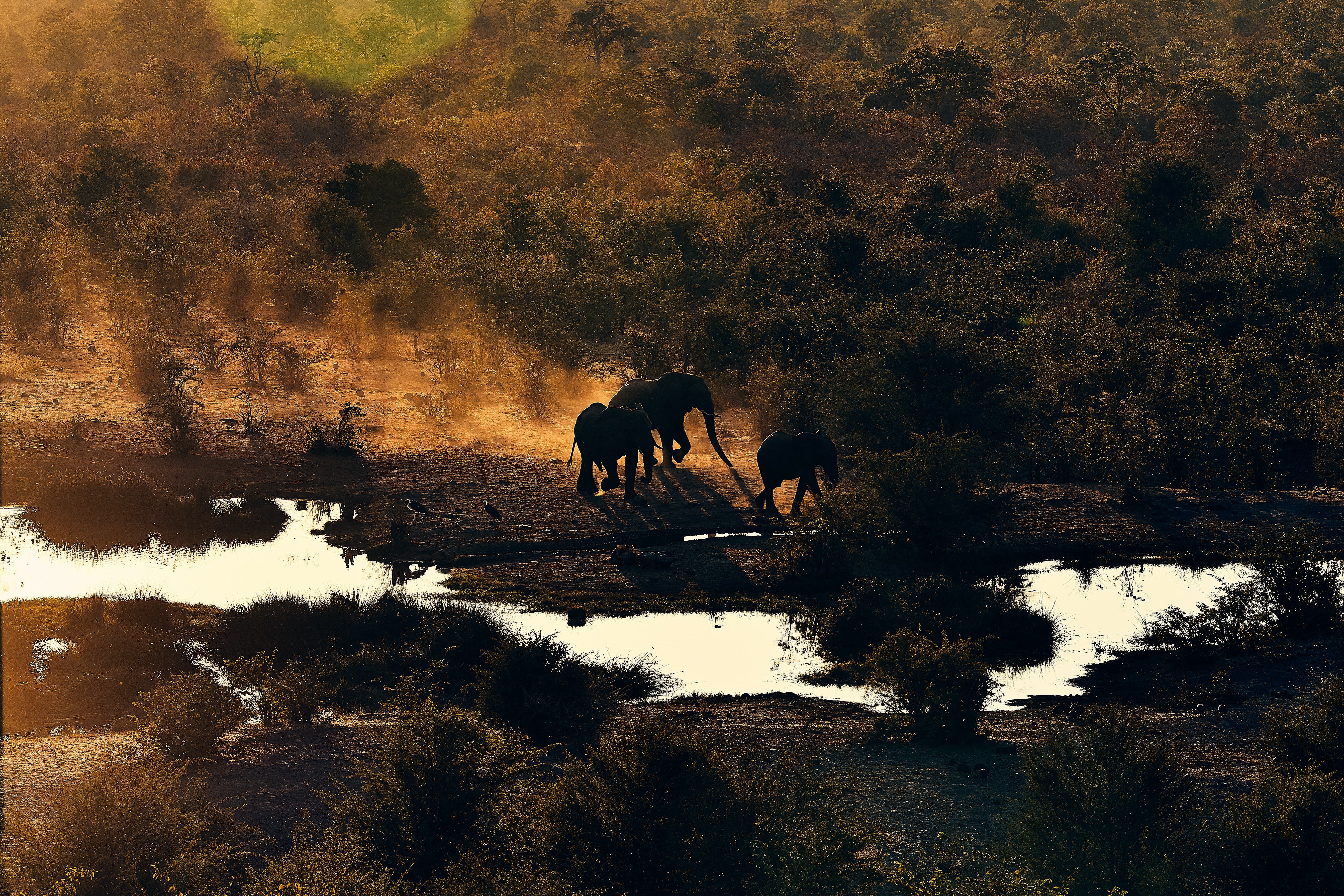Water crisis fuelling human wildlife conflict in Zimbabwe
Changing climate reduces rainfall in the already dry northern region

Your support helps us to tell the story
From reproductive rights to climate change to Big Tech, The Independent is on the ground when the story is developing. Whether it's investigating the financials of Elon Musk's pro-Trump PAC or producing our latest documentary, 'The A Word', which shines a light on the American women fighting for reproductive rights, we know how important it is to parse out the facts from the messaging.
At such a critical moment in US history, we need reporters on the ground. Your donation allows us to keep sending journalists to speak to both sides of the story.
The Independent is trusted by Americans across the entire political spectrum. And unlike many other quality news outlets, we choose not to lock Americans out of our reporting and analysis with paywalls. We believe quality journalism should be available to everyone, paid for by those who can afford it.
Your support makes all the difference.By Calvin Manika for Community Podium News
Scarcity of water has heightened fears of human wildlife conflict in Matetsi village near Hwange in northern Zimbabwe, as elephants are expected to gravitate towards human settlements in search of water.
The area received average rainfall during the just-ended rainy season, which has momentarily kept the elephants at bay, but as water sources dry up the jumbos tend to move to residential areas in search for the precious liquid.
“The biggest challenge facing both animals and human beings is water. It’s better during the rainy season but as soon as the water bodies start drying up the wild animals find their way into our communities. Unfortunately when this happens death is inevitable,” said Godfrey Dube, a village resident.
Hwange has been at the receiving end of climate change induced human wildlife conflict. In some instances villagers have taken the law into their hands, killing wild animals in the process.
Hwange district is in Agro-Ecological Zone 4, and is characterised by high temperatures, low rainfall and long dry spells. In an effort to conserve wildlife, the Bhejane Trust has built several water ponds powered by diesel generators in Zambezi National Park.
Bhejane Trust founder, Trevor Lane, said in an effort to keep the wild animals within the confines of the national park, his organisation is complementing the Zimbabwe National Parks and Wildlife Management’s (Zimparks) work in wildlife conservation.
“Shortage of water causes elephants to roam and sometimes become victims of human activities such as poaching. We try to make the watering holes as natural as possible to maintain the natural habitation,” said Lane.
In Zimbabwe, human wildlife conflict cases commonly involve animals like baboons, foxes, elephants and hippos due to shortage of food and water in the wild. Elephants and hippos usually destroy maize fields and encounters with wild animals can result in injury and death.
Villagers in Matetsi say, although retaliatory killing is unlawful and dangerous, it is sometimes the community’s only defence against dangerous wildlife.
“We usually alert the national park’s officials on animals causing problems so that they can get rid of them. However, we have some incidents where elephants are poached with the assistance of disgruntled villagers. In areas with high human wildlife conflict, most of the villagers don’t seem to be benefiting from wildlife, and that is dangerous to conservation efforts,” said Thomas Moyo.
In late 2021, during a 2022 pre-budget seminar for parliamentarians in Victoria Falls, the Minister of Environment, Climate and Tourism, Nqobizitha Mangaliso Ndlovu, said there was increasing competition for resources such as water and food between people and wild animals, affecting areas like Matetsi.
According to the African Wildlife Foundation (AWF), Africa’s wildlife, wild lands, and rural communities bear the brunt of climate change. The foundation says by 2030 water scarcity will impact as much as two-thirds of Africa.
“On the climate change-induced effects such as shortage of water, even though the continent consumes a tiny fraction of the world’s fossil fuels, Africa’s vast ecological wealth and unique natural ecosystems are especially susceptible to shifts in weather patterns. The protection of large landscapes is one of the greatest mitigation measures for climate change. If managed responsibly, large intact lands can mitigate climate impacts, helping wildlife and people adapt,” notes AWF in a statement.
Zimparks, alongside various partners, is working on climate-smart conservation planning and sustainable natural resource management. The National Parks Authority Spokesperson, Tinashe Farawo, applauds the efforts being made.
“Our poaching trends at a national level have been declining especially last year where we only recorded twenty elephants being killed by poachers in Hwange National Park and in Matusadona area where most of these species are prevalent,” Farawo said.
The current United Nations Environmental Programme (UNEP) environmental crime report pinpoints a number of international conventions and national initiatives that seek to address climate change and human-wildlife conflict. Under-Secretary-General and Executive Secretary of the United Nations Convention to Combat Desertification (UNCCD), Ibrahim Thiaw, says at stake is the financial loss running into billions of dollars that these environmental crimes cause.
“The ecosystem disruption, loss of biodiversity and crippling ecosystem services that underpin human wellbeing to build resilient economies and adapt to climate change,” said Thiaw.
The two main causes of the decline in the elephant population in Zimbabwe have been the demand for ivory and land-use changes. Human wildlife conflict, increases in poaching levels and loss of habitat are threatening the survival of African elephant populations in Hwange.
This article is reproduced here as part of the African Conservation Journalism Programme, funded in Angola, Botswana, Mozambique, and Zimbabwe by USAID’s VukaNow: Activity. Implemented by the international conservation organisation Space for Giants, it aims to expand the reach of conservation and environmental journalism in Africa, and bring more African voices into the international conservation debate. Read the original story here:
Join our commenting forum
Join thought-provoking conversations, follow other Independent readers and see their replies
Comments